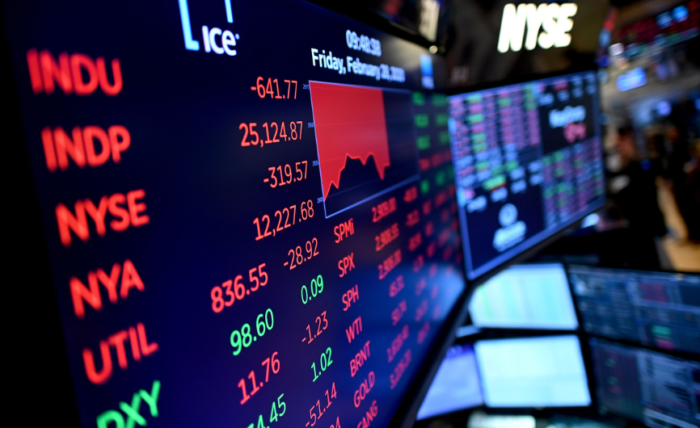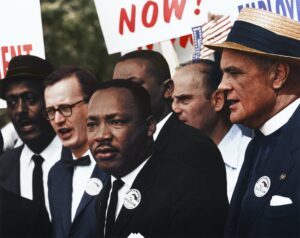The world is being ravaged by the coronavirus pandemic, which has already claimed hundreds of thousands of lives. Yet it has become painfully and tragically clear that it is not merely a virus claiming lives. We are also being assailed by a society that has no problem marshaling bombs and fighter jets, but will not assemble enough ventilators and masks to battle the pandemic. We set countries and states bidding against one another for ventilators on the “free market” rather than devise centralized plans for their production and distribution.
The coronavirus pandemic is a capitalist pandemic. From the role of factory farming in exposing humans to zoonotic diseases, to health care systems stripped bare by decades of budget cuts, to a for-profit pharmaceutical industry that has until now refused to undertake developing a general cure for the flu and its deadly variants, capital dictates what is possible by determining what is profitable.
Epicenter of Profit and Pandemic
The United States, the epicenter of global capitalism, has become also the epicenter of the pandemic. Despite repeated briefings in which analysts concluded, as early as November of 2019, that a viral infection could cause a “cataclysmic event,” Trump and his administration dragged their feet for months. With no nationwide response to the virus in place, COVID-19 spread to literally every county in the country. The administration finally stepped in to save Wall Street, and only secondarily committed a fraction of the bailout resources to Main Street.
Now the working class is once again being made to pay—with our lives, our livelihoods, and our well-being. While the rich and famous were reporting their coronavirus test results on social media at the outset, millions of people could not access testing, including health care workers on the frontlines of fighting the pandemic. State and local officials waited far too long to issue stay-at-home orders and close down schools and other institutions, leaving workers (particularly low-wage and frontline workers) vulnerable, and allowing the virus rip through communities.
People of color, who because of systematic racism bear the brunt of economic inequalities and discrimination, are especially vulnerable to the spread and deathly impact of the virus. Conditions of poverty, which disproportionately impact people of color, exacerbated the COVID-19 disaster: cramped living conditions that make social distancing impossible, pre-existing chronic diseases like high blood pressure, heart disease and diabetes, and jobs that don’t allow for telecommuting and/or are deemed essential (as grocery workers, delivery people, nurse aides and nurses, and sanitation).
In New York City, the New York Times reported death rates for Black and Latinx people were twice as high as those of white people. In Chicago, Black people account for 72 percent of deaths, despite making up less than a third of the city’s population. The neighborhoods that are majority Black or Latinx are those that suffer most from lack of testing sites and available hospital beds, while those that make it to a hospital are then less likely than their white counterparts to be treated properly once they arrive.
The extent to which capitalism utilizes profit metrics, but understands nothing of life metrics, has become unambiguously transparent to billions of people around the world. Barely a month had passed since most states in the US issued stay-at-home orders when politicians of all stripes started clamoring for dates to return to work. The system can’t comprehend a scenario in which we prioritize public health for so long that it might interfere too greatly with economic output. Ultimately, every political decision is measured as a cost-benefit analysis.
The coronavirus pandemic has accelerated economic and social processes that have been unfolding in an accelerated form over the past decade. The Federal Reserve reported that between 2016 and 2019 the country’s top 1 percent controlled a record-high 32 percent of the wealth, while the bottom half of the adult population have had to divvy up somewhere between 1 and 2 percent of the nation’s wealth between us. At the same time, the disproportionate COVID-19 death rates among people of color have provided a grim backdrop to a spate of high profile killings of black men by police. George Floyd’s murder was a final straw that set off protests and battles with cops in dozens of cities precisely because the police actions that led to Floyd’s death are all too familiar.
These conditions have fueled an “age of global mass protests.” A 2020 report from the Center for Strategic and International Studies found that mass protests have increased by 11.5 percent per year worldwide, on average, since 2009—from the Arab Spring, to Occupy Wall Street in the United States, to the Indignados’ occupations in Spain, to strike waves in China, to pro-democracy protests in Hong Kong and Iran. As the report noted: “Even when accounting for population growth, the relative number of demonstrators over the past three years is likely higher than participation in either the anti-Vietnam War movement or the civil rights movement.”
The need for isolation and distancing barely paused the occurrence of mass gatherings. The circumstances that feed them—economic and racial inequalities, planetary crisis, and disgust with political corruption—will only deepen in the years ahead. We are living through the stormiest of political times in generations, and these times are in equal parts inspiring and terrifying.
Using Marx to Understand the Rise of Capitalism
We need a radical theory to address the questions that millions have asked in recent years. Why are resources so easily marshaled for war yet so impossible to rally towards stopping a pandemic from tearing through our communities? Why do police protect stores but not people? Why do profits always trump human lives and ecological sustainability? If these questions are ever raised in mainstream discussion at all, they are presented as unrelated issues.
Contrary to what we are taught, the economic system of capitalism is intimately connected to society’s greatest political challenges of war, health and health care, climate change, and oppression. The growing popularity of socialist idea signals an attempt to answer these questions. A new generation is investigating anti-capitalist theories and ideas, which are no longer tainted with the false “socialisms” of the totalitarian states of the past.
Karl Marx, an economist, political theorist, philosopher, and above all revolutionist, developed a profoundly radical analysis of capitalism. His economic theory and political method of analysis are critical tools for activists today. Marxism is a means to understand and dismantle the world of the 1 percent, a world that exploits, disenfranchises, oppresses, and dispossesses the many for the sake of the few; a world that may not make it to the next century with our planet and our humanity intact.
At its core, capitalism was defined by Marx as a social relation of production. He meant that profits are not the result of good accounting or the inventive ideas of the superrich, but are instead the outcome of an exploitative relationship between two classes of people: bosses and workers. In our society, employers and workers meet each other on a very unequal playing field, in which one owns the means to produce value (land, factories, tools and machinery, technology, etc.), and the other has no choice but to sell their labor in order to live.
No matter how “essential” mainstream pundits have suddenly discovered workers to be, the bosses maintain the power to make every critical (and sometimes life-or-death) decision at workplaces; and at the end of the day, take home the profits. Capitalism is therefore a system in which production and exchange are determined by these positions of exploitation.
This social order of haves and have-nots is neither natural nor timeless. In fact, the precondition for the early development of capitalism was the violent expropriation of the masses of people from their land in order to create the conditions in which capitalism could develop and flourish. “The expropriation,” wrote Marx, “of the agricultural producer, of the peasant, from the soil is the basis of the whole process.”
Marx vividly described the cruel history in which displaced peasants-turned-workers were subjected to a new hell on earth in the “dark satanic mills” of early capitalism, as the poet William Blake called them. The new working class was disciplined to this social order via legislation against vagabondage, joblessness and begging, punishable by beatings, imprisonments, branding and mutilation. The new capitalist class, meanwhile, amassed the wealth necessary to dominate workers by engaging in wholesale conquest, slavery and plunder. As Marx described:
“The discovery of gold and silver in America, the extirpation, enslavement and entombment in mines of the indigenous population of that continent, the beginning of the conquest and plunder of India, the conversion of Africa into a preserve for the commercial hunting of blackskins, are all things which characterize the rosy dawn of capitalist production. These idyllic proceedings are the chief momenta of primitive accumulation.”
Capital, wrote Marx, “comes dripping from head to foot, from every pore, with blood and dirt.”
An exploitative system of commodity production and exchange arose over time, neither inevitably nor smoothly, appearing on the scene only recently in human history. The first traces of modern humans date back to more than two hundred thousand years ago. But it was only in the last five thousand years (i.e. during less than three percent of human history) that the first class societies arose. Modern industrial capitalism surfaced just a few hundred years ago (i.e. in the last 0.25 percent of human history). In other words, if human history took place over the course of a single day, capitalism only unfolded three minutes before midnight.
Throughout most of our history, humankind lived in hunter-gatherer societies, which organized themselves to meet basic needs—food, water, shelter. Agriculture had not yet been developed, and societies generated little to no excess beyond what was needed for day-to-day subsistence. There was no significant surplus to be hoarded by individuals or communities. Our ancestors tended, in fact, towards common ownership, egalitarianism, and organized themselves by and large into loose-knit collectives with decision-making dispersed among its members.
As anthropologist Eleanor Burke Leacock argued, hunter-gatherer societies required “great individual initiative and decisiveness” among their members. “Decision-making in this context calls for concepts other than ours of leader and led, dominant and deferent, no matter how loosely these are seen to apply.” Just as greed and deference to authority are attributes encouraged in our current society, autonomy was a much more useful trait for hunter-gatherers. One example quoted by Leacock was the observation of Jesuit missionary Paul Le Jeune, who came into contact with the Montagnais-Naskapi people in the seventeenth century in Canada. He complained:
“They imagine that they ought by right of birth, to enjoy the liberty of wild ass colts, rendering no homage to anyone whomsoever, except when they like. They have reproached me a hundred times because we fear our Captains, while they laugh at and make sport of theirs. All the authority of their chief is in his tongue’s end; for he is powerful insofar as he is eloquent; and, even, if he kills himself talking and haranguing, he will not be obeyed unless he pleases the Savages.”
Capitalism: Profit vs. (Working) People
Thus, when capitalism emerged, it developed a wholly new social order, one that required severing the masses of people from access to land, tools, and resources. Rather than a peasantry violently coerced to turn over goods to their lords, capitalism created a new underclass of wageworkers—a class of people theoretically free to work where and how they pleased but who would in practice be compelled—by economic necessity—to produce a surplus for someone else nonetheless. Over the course of three centuries (from the fourteenth century until the Industrial Revolution of 1780–1850) the transformation of feudal relationships to capitalist ones created a system of production based on the exploitation of “free” wage labor: a social order of haves and have-nots.
Neither the process, nor the exploitative arrangement that it gave rise to, was “natural” or automatic. As Marx wrote:
“One thing, however, is clear: nature does not produce on the one hand owners of money or commodities, and on the other hand men possessing nothing but their own labor-power. This relation has no basis in natural history, nor does it have a social basis common to all periods of human history. It is clearly the result of a past historical development, the product of many economic revolutions, of the extinction of a whole series of older formations of social production.”
The social order of capitalism revolves around the buying and selling of labor power. Whereas previous class societies made no pretense to obscure rulers seizing persons, their land, or the products of their labor through force, capitalism cloaks these processes as operations of the “free market.” Workers, we’re told, freely sell their labor power to bosses for “a fair day’s wage.”
But labor power is like a goose that lays golden eggs for capitalists. Marx argued that it is a “special commodity” which creates more value than it costs the bosses to purchase. The value of labor-power, paid out in wages, loosely reflects the labor time required to keep the worker alive, to daily reproduce her capacity and readiness to go to work every day, and to keep her children alive, so that they may one day replace her in the workforce. The value of food, rent, clothing, training and education, along with other necessities deemed essential by society, therefore make up the value of labor power (though workers can be paid above or below this value depending on given social conditions).
If workers and employers met each other on an equal playing field, as capitalism’s ideologues would have us believe, you would give over to your boss only the amount of time that it takes to reproduce the value of your labor power. If it takes you four hours to produce the value of your daily wage, then you’d go home after that point. But instead, the boss gets your labor power for the rest of the working day, and it doesn’t matter if you produce twice or ten times the value of your wage, the boss will get to keep the difference.
Employers buy your labor power from you, not the actual fruits of your labor. And you make that value back for them in an hour or two. The rest of your shift, you’re basically working for free. The extra value produced during this stolen time—”surplus value” as Marx called it—is the basis of capitalist profits.
This brings us back to the fact that capitalism is above else a social relation of production. Profits are the result of a relationship of exploitation between bosses and workers. This is both the product of history: the expropriation of peasants from the land, slavery, conquest. And it is upheld by current conditions: resource wars, displacement of indigenous populations, ongoing plunder of the earth’s resources, a repressive state apparatus.
The division of society into haves and have-nots, the plunder of the earth’s resources, and the oppression required to sustain this reality are the foundations of capitalist society. Marx’s ideas are tools for grappling with, and ultimately dismantling, the world of the 1 percent.
Hadas Thier is an activist and socialist in New York, and the author of the forthcoming book A People’s Guide to Capitalism: An Introduction to Marxist Economics (Haymarket Books). You can follow her on Twitter @HadasThier.




